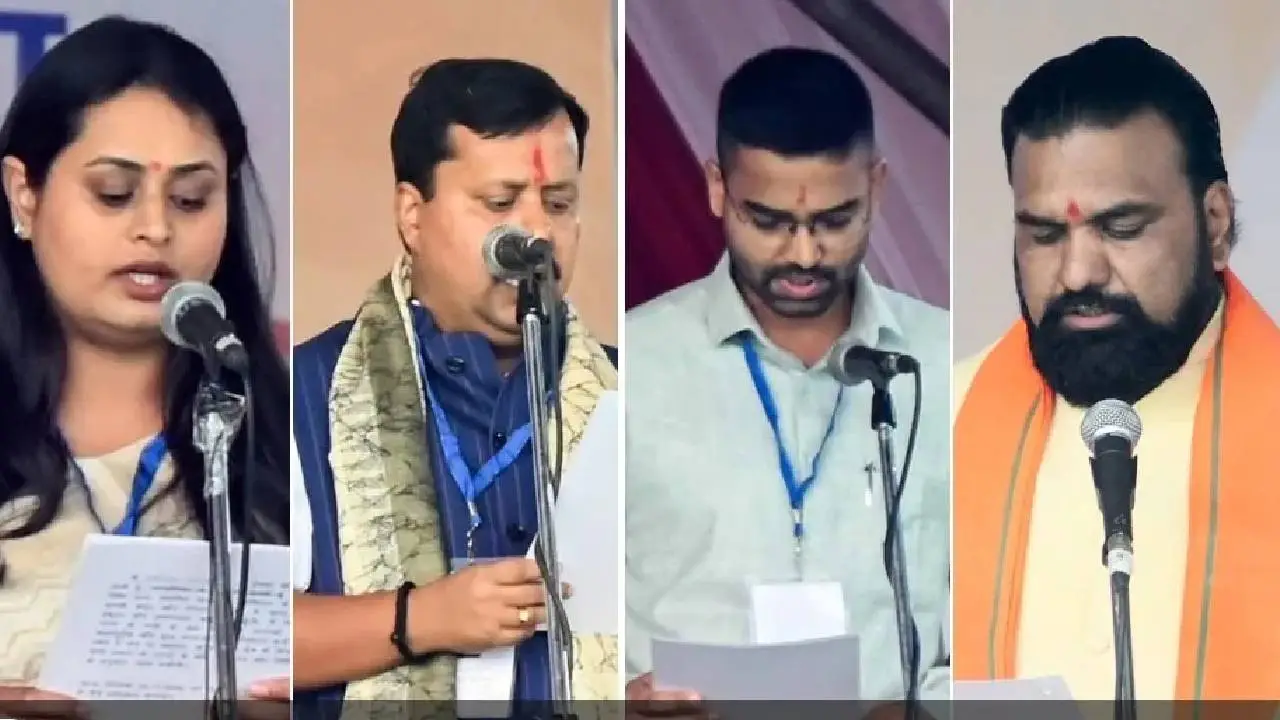
(Credit: OpenAI)
Bihar: The latest Bihar cabinet has brought Parivarvad into discussion again. Ten ministers have inherited political influence from their parents or spouses. Analysts say family history provides easier access to ministerial opportunities. Critics argue that talent and merit should weigh higher than lineage.
Supporters claim political grooming comes naturally within such households. This pattern reflects a long-standing trend in regional leadership. Family continuity is increasingly visible across multiple parties.
Deputy Chief Minister Samrat Choudhary is the son of former minister Shakuni Choudhary. He was elected from the same constituency previously won by his father six times. Vijay Kumar Choudhary, a senior JDU leader, entered politics after his father’s passing. Ashok Choudhary also followed his father Mahavir Choudhary into active politics. His daughter is presently an MP from Samastipur. All three hold long-term connections in the state’s political structure.
Santosh Kumar Suman, from HAM party, is the son of former CM Jitan Ram Manjhi. He now leads the party formed by his father. Deepak Prakash, a first-time minister, is the son of RLM chief Upendra Kushwaha and his mother is currently an MLA. Nitin Nabin succeeded his father, BJP leader Naveen Kishore Prasad Sinha, on the same constituency. These leaders are often seen as second or third generation politicians. Their rise highlights the influence of family background.
Shooter and Commonwealth Games gold medallist Shreyasi Singh has been appointed minister for the first time. Her father Digvijay Singh served as a Union minister. After his death, her mother was elected as MP from Banka. Similarly, Rama Nishad, serving from BJP quota, is married to former MP Ajay Nishad. Her father-in-law was also a senior political figure. Leshi Singh joined politics after her husband, a local leader, was killed. Their stories reflect transitions from private life to public responsibility.
Several ministers have been reappointed multiple times due to long involvement in governance. Vijay Choudhary and Ashok Choudhary have previously overseen key departments. They are familiar with state administrative structure and coalition functioning. Their political exposure began early due to existing influence at home. Many believe such upbringing helps swift decision-making capability. However, critics caution it may limit opportunities for first-generation leaders. Public concern revolves around fairness in political allocation.
Opposition leaders say the cabinet displays favoritism towards influential family names. They argue that grassroots workers are not given equal opportunity. Coalition supporters defend the appointments, citing leadership consistency and experience. Family-based politics is not unique to Bihar, but common across national scenario. Debate continues on whether inherited power restricts democratic representation. Voters expecting reform are monitoring future governance closely. Final judgment will depend on performance rather than background.
Analysts suggest that actual impact will depend on administrative delivery. Ministers from strong political families may bring network advantage and negotiation skill. Critics emphasize need for accountability and equal policy focus. Chief Minister Nitish Kumar is expected to balance experience with objective governance. He maintains that results matter more than relationships. The coming months will reveal whether the cabinet delivers on state progress. Parivarvad debate remains active ahead of upcoming political assessments.





Copyright © 2026 Top Indian News
